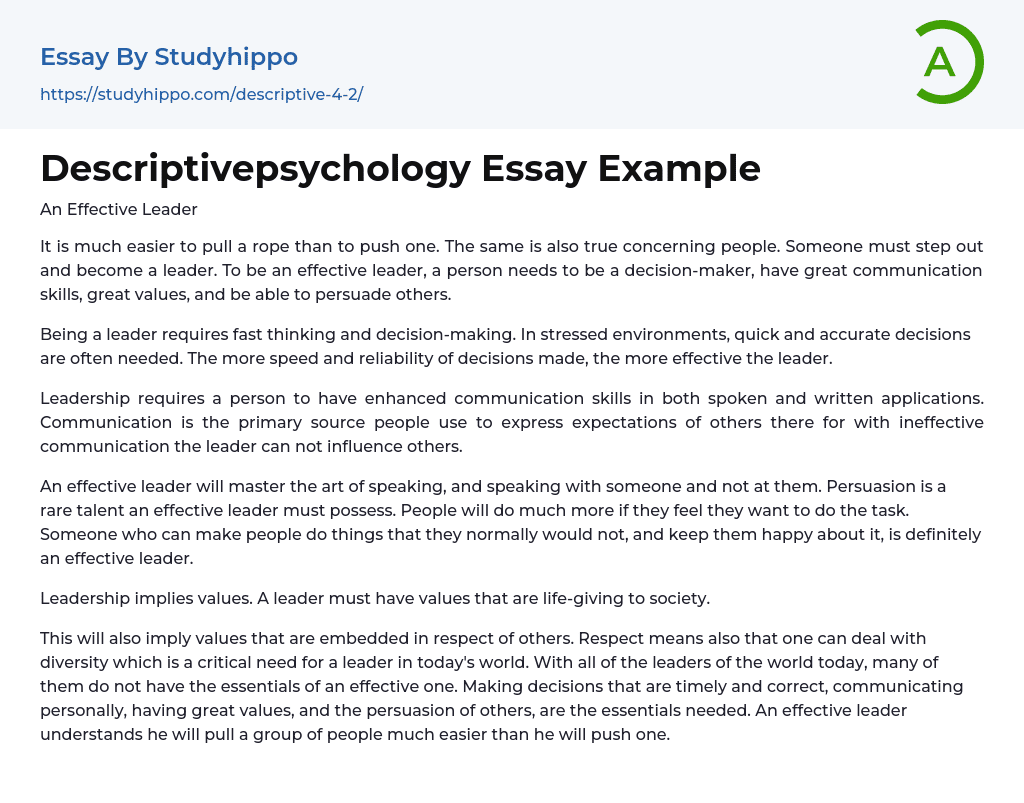An Effective Leader
It is easier to pull a rope than to push it.
Leadership is also applicable to individuals. One must take initiative to assume the role of a leader. Effective leadership necessitates making decisions, possessing excellent communication skills, upholding strong values, and being able to influence others. Being a leader entails thinking quickly and decisively, particularly in high-pressure situations where prompt and accurate choices are crucial.
The leader becomes more effective with increased speed and reliability in decision-making. Leadership necessitates strong communication skills in both spoken and written forms. Communication is crucial for expressing expectations of others; therefore, ineffective communication hinders the leader's ability to influence others. A skilled leader excels in the art of speaking and engaging in meaningful conversations
...rather than speaking at others.
Persuasion is a crucial skill for a competent leader to possess as it enables them to inspire people to willingly undertake tasks they may not have otherwise. The ability to effectively influence individuals and ensure their satisfaction is an indication of an effective leader. Leadership involves adhering to values that contribute positively to society.
This will also imply values that are embedded in respect of others. Respect means also that one can deal with diversity which is a critical need for a leader in today's world. With all of the leaders of the world today, many of them do not possess the essentials of an effective one. Making decisions that are timely and correct, communicating personally, having great values, and the persuasion of others are the essentials needed. An effective leader understands that they will pull a group of people much easier than they will push one.
- Being A Leader essays
- Servant Leadership essays
- Leadership Experience essays
- Leadership Qualities essays
- Board Of Directors essays
- Brand Management essays
- Business Ethics essays
- Business Management essays
- Change Management essays
- Comparative Analysis essays
- Decision Making essays
- Dispute Resolution essays
- Knowledge Management essays
- Leadership essays
- Leadership and Management essays
- Manager essays
- Operations Management essays
- Performance Management essays
- Product Management essays
- Project Management essays
- Quality Management essays
- Risk essays
- Risk Management essays
- Scientific Management essays
- Stress Management essays
- supply chain management essays
- Time Management essays
- Total Quality Management essays
- Abnormal Psychology essays
- Abraham Maslow essays
- Attachment Theory essays
- Authority essays
- Behaviorism essays
- Classical Conditioning essays
- Cognitive Psychology essays
- Counseling essays
- Developmental Psychology essays
- Educational Psychology essays
- Erik Erikson essays
- Family Therapy essays
- Jean Piaget essays
- Maslow's Hierarchy Of Needs essays
- Mental Health essays
- Operant Conditioning essays
- Personality Psychology essays
- Positive Psychology essays
- Psychoanalysis essays
- Psychotherapy essays
- Sigmund Freud essays
- Social Psychology essays




